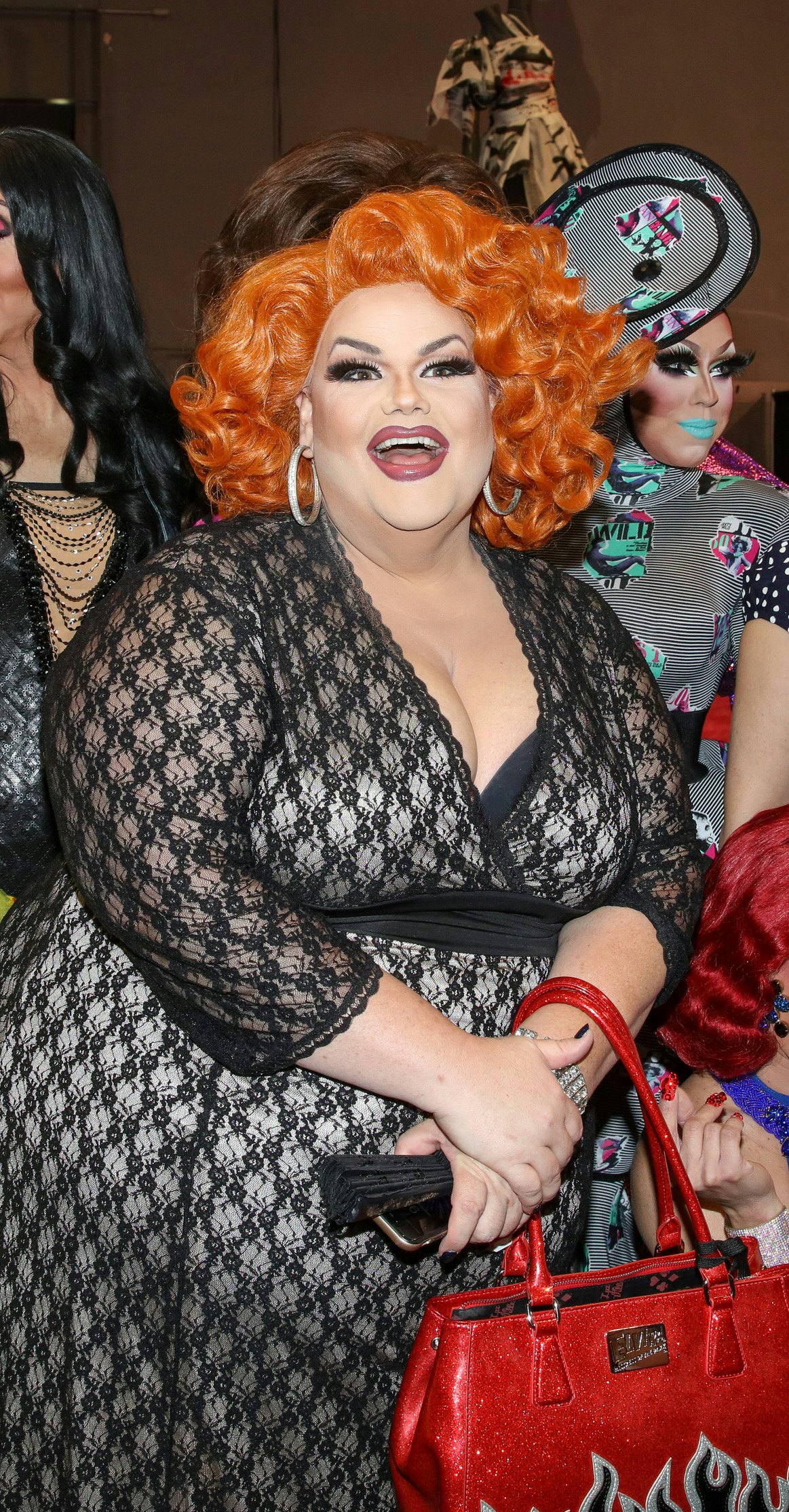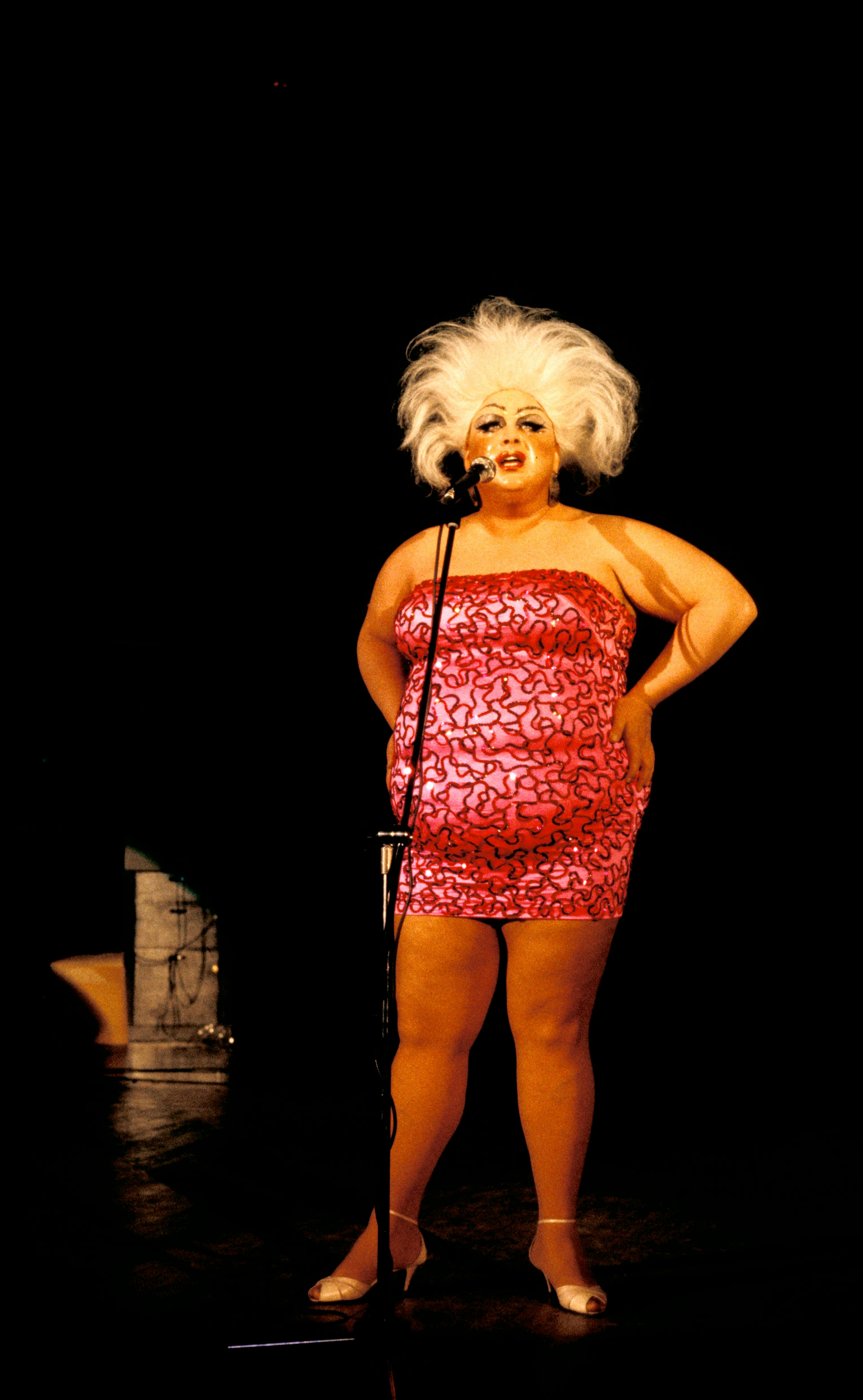
#Divine drag queen full#
Budget was extremely scarce and a full script often non-existent.Īnd terribly monstrous. He founded his own productionĬompany “Dreamland Productions” (that’s where the term “Dreamlanders” comesįrom).

Waters films – they are purely independent. Together with Divine they set new levels of shock and made a mockery of society norms and political correctness. Still… these taglines are only a mere introduction into the unexpected world John Waters has created. Sentences like “The sleaziest show on earth” “Divine- The Filthiest Person Alive” and “A new high in low taste” proudly introduce these films, setting the tone of what to anticipate. So what constitutes a classical Waters’ and Divine’s film? Well, to generally sum up, violence, exploitation, perversion, sex, (very) dark humour and devoid of morality. Plot and created characters (contradictory to Warhol who observed and shot his Strongly disagreed, saying that there is no resemblance because his movies had At the time he was often compared to Andy Warhol but Waters On the horizon as one of the most distinguished underground and independentįilmmakers. Of them dwelled into the underground scene soon enough starting to workĬandles (1966) shook the underground art scene. Waters and Divine met there in the mid-sixtees. This crazy bunch is inseparable with John Waters persona, as well as alternative cinema scene. Together with “Dreamlanders” – an acting troupe from Baltimore – Divine performed in all of them. The so called “Pope of Trash” directed and Divine starred in some of most bizarre films cinema history has ever seen – Multiple Maniacs (1970), Pink Flamingos (1972), Female Trouble (1974) and Hairspray (1988) to name a few. They redefined underground, independent, trash and LGBT films and, last but not the least, drag culture. Put them both together and discover one of the most provoking and daring cinema tandems ever seen on the screen. And Harris Glenn Milstead (1945-1988) is an American actor, performer and famous drag queen better known by his stage name Lady Divine or just Divine. Today he remains a cult figure, particularly within the LGBTQ+ community, with his music played in queer clubs, serving as an inspiration to many.American filmmaker John Waters (1946) is known for his cult independent movies most frequently referred to as trash films.

Milstead avoided speaking about his sexuality early in his career, but identified as gay and was more open about his sexuality in his final years.
#Divine drag queen tv#
At the time of his death he was preparing for another mainstream role, Uncle Otto on the hit TV sitcom Married …With Children.
#Divine drag queen movie#
He went on to have a successful cabaret career in Europe, achieved international chart success with pop hits like “You Think You’re a Man,” “I’m So Beautiful” and “Walk Like a Man,” all of which were performed in drag, and secured movie roles outside of Waters’ universe… although he remained a muse to Waters and would later appear in Polyester(1981) and Hairspray (1988), the latter of which represented his breakthrough into mainstream cinema.ĭivine died of heart failure just three weeks after Hairspray was given a wide release in movie theatres.

The risqué movies provided Milstead and his character Divine with a vehicle for fame and notoriety. (No one who’s seen Pink Flamingos will ever forget the infamous scene when Divine as Babs Johnson eats dog feces.) By the mid-1960s, he had embraced the city’s countercultural scene and befriended filmmaker John Waters, who gave him the name “Divine” and the tagline of “the most beautiful woman in the world, almost.” After appearing in several short films, Divine took a lead role in Waters’ early films including Mondo Trasho (1969), Multiple Maniacs (1970), Pink Flamingos (1972) and Female Trouble (1974), all of which have achieved cult status over the years, but at the time created a stir with film censors. “He was getting the legitimate screen and television offers that showed the industry had finally accepted him as the very good character actor he always knew he was.”Īccording to Jay, Milstead had had a medical checkup the previous week and was declared in excellent health, other than his weight, “which had been a constant problem throughout his life.”īorn in Baltimore, Maryland, on October 19, 1945, to a conservative middle-class family, Milstead developed an early interest in drag while working as a women’s hairdresser. “He was finally getting respect within the industry,” said Milstead’s manager, Bernard Jay, shortly after Milstead’s death. On March 7, 1988, Harris Glenn Milstead – better known as Divine, the larger-than-life drag queen – died in his sleep of a heart attack attributed to his obesity, at the Regency Plaza Hotel on Hollywood Boulevard in a Los Angeles, where he was staying as a guest.


 0 kommentar(er)
0 kommentar(er)
